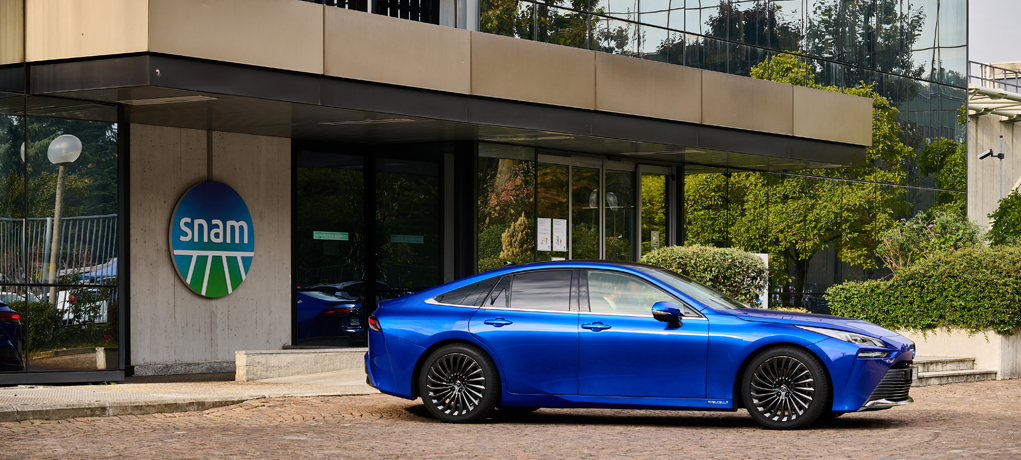Saudi Arabia's energy minister, Abdulaziz bin Salman, has said most of the gas from the $110 billion (€94.7 billion) Jafurah development will be used to make blue hydrogen, as part of an attempt by the kingdom to become the biggest supplier of hydrogen in the world, according to reports by news agencies Bloomberg and Reuters. “We are the biggest adventurers, when it comes to blue hydrogen,” Bloomberg quoted Prince Abdulaziz as saying. “We’re putting our money where our mouth is … on hydrogen. We have a terrific gas base in Jafurah, we will use it to generate blue hydrogen.” According to Reuters, the country wants to export around 4 million tons of hydrogen by 2030.
Eleven companies have launched the GreenHyScale project in Denmark. The plan, which includes a 100 MW electrolysis plant, aims at accelerating pressurized alkaline electrolysis to enable the large scale production of green hydrogen. “Our focus is to create a replicable solution for stakeholders in both Denmark and the rest of Europe – replicability is key to the dissemination of green hydrogen,” said Anders Bøje Larsen, chief technology officer of Danish green industrial park GreenLab today. “That makes GreenHyScale an important project with the potential to contribute greatly to the positive development of a hydrogen infrastructure in and outside of the EU.” The partner companies also want to lower the leveled cost of hydrogen towards cost parity with fossil fuels. The project is backed by €30 million of EU funding.
Japanese automaker Toyota, Italian gas transmission system operator Snam and Portuguese bus and coach manufacturer CaetanoBus have signed a memorandum of understanding to promote hydrogen-based mobility. “With this agreement, we aim to build an alliance between operators in the energy and transport sectors to offer end users competitive sustainable hydrogen mobility solutions,” said Snam chief mobility officer Alessio Torelli. The agreement may lead to “end-to-end” hydrogen mobility projects in Italy and other European countries, including along the entire value chain. “The presence of an adequate hydrogen refueling infrastructure is a necessary condition for developing its full potential for mobility,” said Luigi Ksawery Lucà, CEO of Toyota Motor Italia.
Australian energy company Woodside Petroleum has unveiled plans to establish an export-oriented hydrogen and ammonia production facility in southern metropolitan Perth. “Local refuelling stations can be built independently of the export project timelines and could operate as early as 2023, subject to approvals and customer demand,” the company wrote yesterday. In collaboration with the government of Western Australia, the company wants to build the project on around 130 hectares of vacant industrial land, near gas, power, water and port infrastructure. “‘H2Perth' will also facilitate substantial growth of renewables in Western Australia by providing to the grid a flexible and stabilizing load that benefits uptake of intermittent renewable electricity by households and local industry,” said Woodside CEO Meg O’Neill.
South Korea-based Doosan Fuel Cell has signed a memorandum of understanding Korea Western Power and Korea Electric Power Corporation (KEPCO) in Seoul. The companies will develop a project to directly inject pure biogas – removed from unused biogas – into hydrogen fuel cells. “Doosan Fuel Cell plans to develop hydrogen fuel cell technology exclusively for pure biogas and supply main equipment, while Korea Western Power and KEPCO E&C are in charge of overall business, and design and construction of pre-treatment facilities, respectively,” the partners wrote. Doosan Fuel Cell has hydrogen fuel cell models that use energy sources such as clean and by-product hydrogen, LNG, and LPG. The agreement signed by the companies was not the only recent hydrogen development in South Korea. According to several reports, steelmaker POSCO and Korean Southern Power have also announced significant investments in hydrogen.
Aberdeen City Council has announced U.K.-based energy major BP as its preferred bidder for a commercial partnership to accelerate the city’s ambitions to become a world-class hydrogen hub. “Phase 1, which involves the delivery of a green hydrogen facility, is targeting first operations from 2024,” said a statement released by the local authority yesterday. “As a result, options could include using power drawn from a new photovoltaic solar farm, green power purchase agreements, and a private-wire grid connection to generate hydrogen for buses, heavy goods vehicles and large vans.” BP vice president Louise Kingham OBE said: “These new business opportunities are underpinned by our 50-plus years of operations in the North Sea where, based out of Aberdeen, we have built up vast skills and experience that are directly transferable to emerging energy industries.”
This content is protected by copyright and may not be reused. If you want to cooperate with us and would like to reuse some of our content, please contact: editors@pv-magazine.com.



6 comments
By submitting this form you agree to pv magazine using your data for the purposes of publishing your comment.
Your personal data will only be disclosed or otherwise transmitted to third parties for the purposes of spam filtering or if this is necessary for technical maintenance of the website. Any other transfer to third parties will not take place unless this is justified on the basis of applicable data protection regulations or if pv magazine is legally obliged to do so.
You may revoke this consent at any time with effect for the future, in which case your personal data will be deleted immediately. Otherwise, your data will be deleted if pv magazine has processed your request or the purpose of data storage is fulfilled.
Further information on data privacy can be found in our Data Protection Policy.